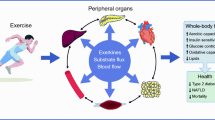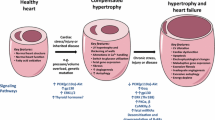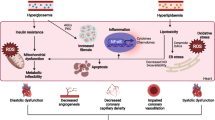Abstract
Alcoholic heart muscle disease is characterized by structural changes which include chamber dilation, ventricular hypertrophy, and myocyte damage. These effects often lead to contractile dysfunction and ultimately to heart failure if alcohol consumption is not terminated. In rat models for heart failure in which heart failure is induced by pressure or volume overload, there is a shift in the myosin heavy chain (MHC) isoforms, from α to β. As a result of this MHC transition, there is typically a decrease in myosin ATPase activity. We utilized a rat model of chronic alcohol consumption in order to determine if alcohol causes a similar shift in MHC isoforms and changes in myosin ATPase activity. A liquid diet containing 9% ethanol (46% of daily calories; 11.8 g/kg/day) was administered to adult rats for a period of 60 or 90 days. This heavy consumption of ethanol resulted in an average blood ethanol content of 150 mg%. The relative abundance of β-MHC isoform protein increased from a control level of 9.7% to 35.1% in hearts of ethanol-fed rats, following 90 days of ethanol consumption. In a separate set of experiments, the levels of α-MHC and β-MHC mRNA were demonstrated to increase by 150% and 230%, respectively. Following a 60 day treatment, there was a significant reduction in the actomyosin Mg2+-ATPase activity in the myofibrillar preparations from hearts of ethanol-fed rats compared to hearts from control-fed rats. In addition, the myosin Ca2+-ATPase activity was decreased 17% and 30% after 60 and 90 days of ethanol consumption, respectively. The present study demonstrates that chronic ethanol consumption induces an increase in the proportion of the total MHC content composed of the β-isoform. This isoform transition is accompanied by an accumulation of β-MHC mRNA, suggesting that the switch is organized pretranslationally. A functional consequence of this transition in MHC phenotype is demonstrated by significant decreases in the myofibrillar and myosin ATPase activities.
Similar content being viewed by others
Author information
Authors and Affiliations
Additional information
Received: 17 November 1998, Returned for 1. revision: 4 January 1999, 1. Revision received: 22 March 1999, Returned for 2. Revision: 12 April 1999, 2. Revision received: 31 May, Accepted: 31 May 1999
Rights and permissions
About this article
Cite this article
Meehan, J., Piano, M., Solaro, R. et al. Heavy long-term ethanol consumption induces an alpha- to beta-myosin heavy chain isoform transition in rat. Basic Res Cardiol 94, 481–488 (1999). https://doi.org/10.1007/s003950050164
Issue Date:
DOI: https://doi.org/10.1007/s003950050164




